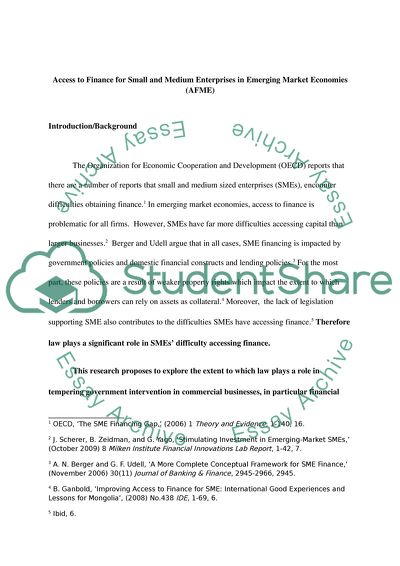Cite this document
(Access to Finance for Small and Medium Enterprises in Emerging Market Essay, n.d.)
Access to Finance for Small and Medium Enterprises in Emerging Market Essay. Retrieved from https://studentshare.org/law/1783167-access-to-finance-for-small-and-medium-enterprises-in-emerging-market-economies-afme
Access to Finance for Small and Medium Enterprises in Emerging Market Essay. Retrieved from https://studentshare.org/law/1783167-access-to-finance-for-small-and-medium-enterprises-in-emerging-market-economies-afme
(Access to Finance for Small and Medium Enterprises in Emerging Market Essay)
Access to Finance for Small and Medium Enterprises in Emerging Market Essay. https://studentshare.org/law/1783167-access-to-finance-for-small-and-medium-enterprises-in-emerging-market-economies-afme.
Access to Finance for Small and Medium Enterprises in Emerging Market Essay. https://studentshare.org/law/1783167-access-to-finance-for-small-and-medium-enterprises-in-emerging-market-economies-afme.
“Access to Finance for Small and Medium Enterprises in Emerging Market Essay”. https://studentshare.org/law/1783167-access-to-finance-for-small-and-medium-enterprises-in-emerging-market-economies-afme.


